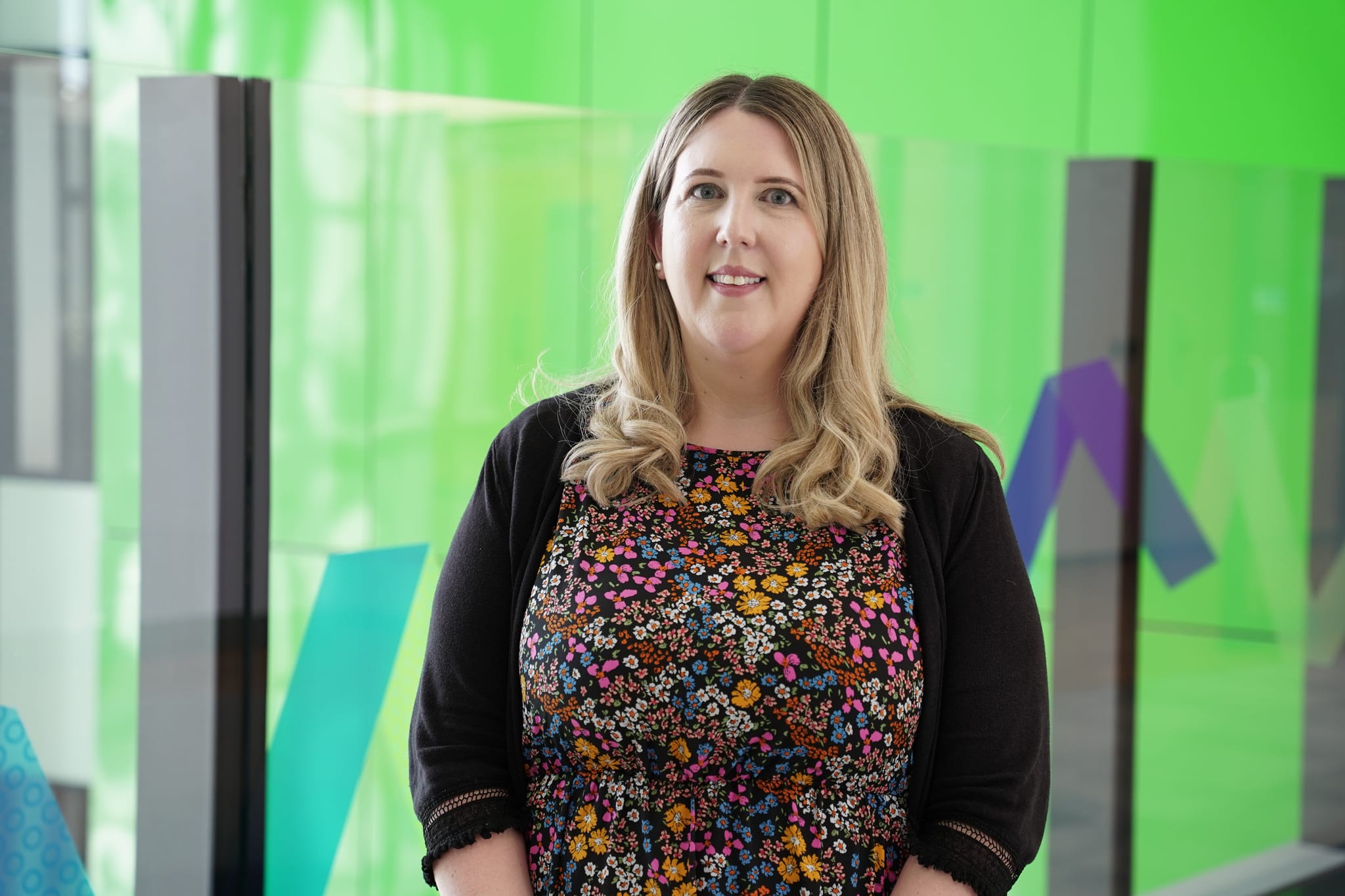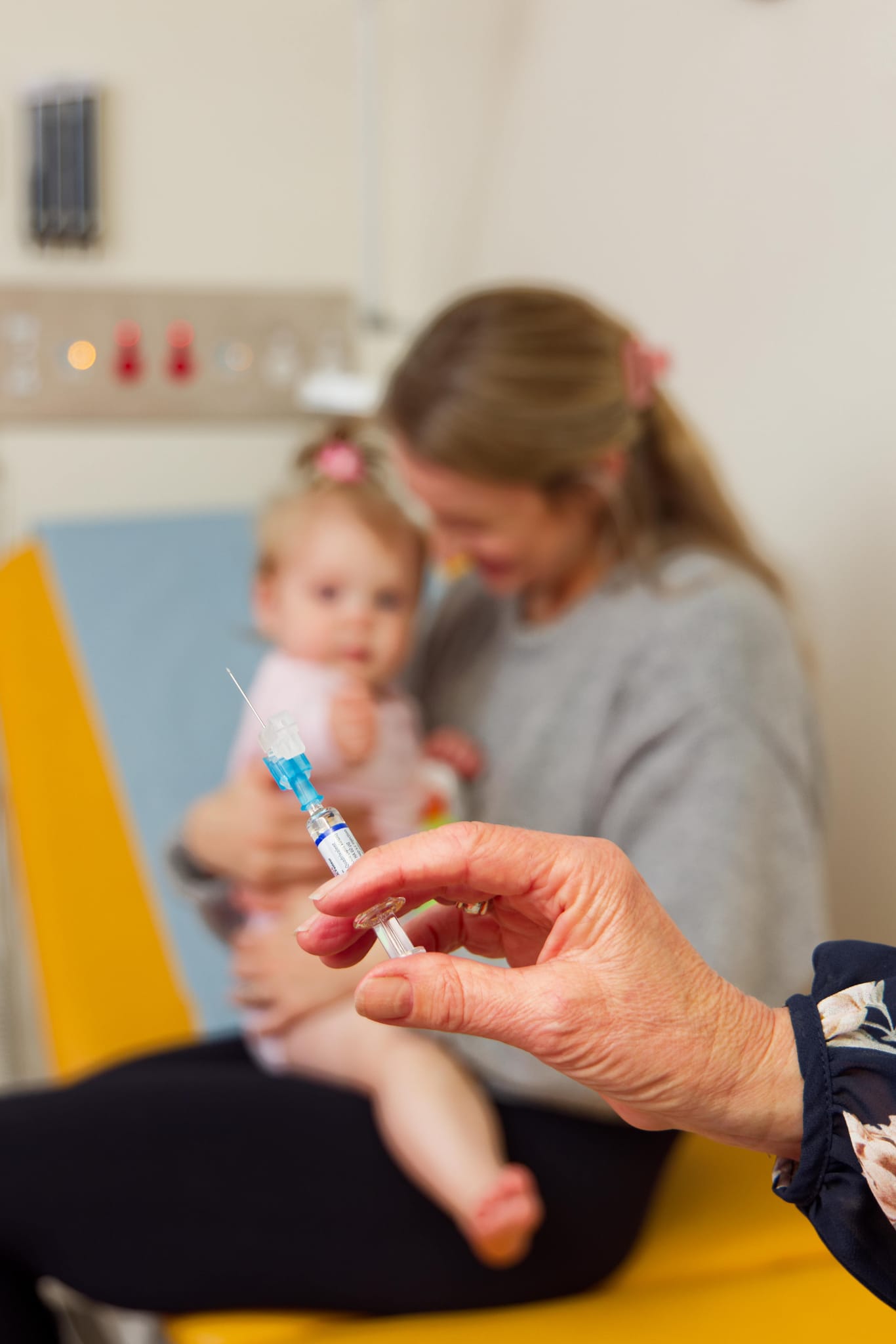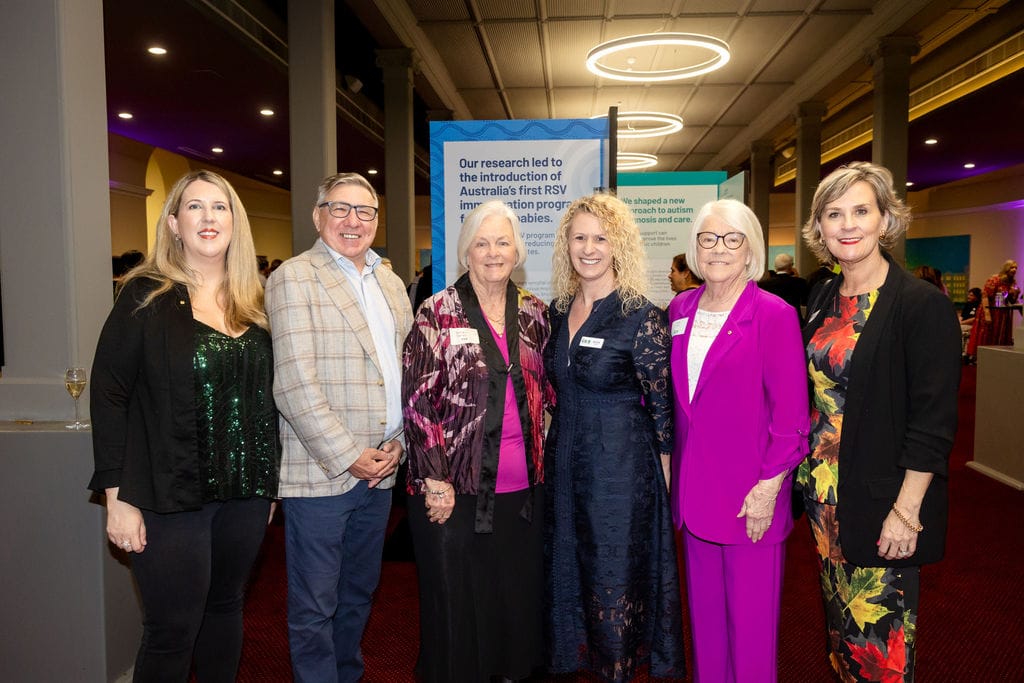
Whooping Cough Day in 2025 has a special significance to Catherine Hughes AM and her family - it marks a decade of dedication to vaccine advocacy after the loss of their four-week-old baby son Riley in 2015.
In her bid to drive awareness of the disease that took his life, Mrs Hughes has achieved more in the past 10 years than ever thought possible. Through the creation of her advocacy organisation, Immunisation Foundation of Australia, ‘on the ground’ efforts attending key events and baby expos nation-wide, and her strong partnership with the Wesfarmers Centre of Vaccines and Infectious Diseases (WCVID), based at The Kids Research Institute Australia, Mrs Hughes has played an instrumental role in changing vaccine policy nation-wide, raising awareness of vaccine-preventable diseases and boosting research efforts into new and improved immunisation programs and resources.
In recognition of Mrs Hughes’ tremendous achievements, we are marking Whooping Cough Day this week by highlighting the major impact of her efforts over the past 10 years.
Maternal whooping cough vaccination introduced throughout Australia
Mrs Hughes and her husband Greg established the ‘Light for Riley’ campaign to shine a light on the dangers of whooping cough, also known as pertussis, and the importance of vaccination during pregnancy in a bid to introduce maternal vaccination to the National Immunisation Policy.
By 2015, every Australian state and territory had implemented free pertussis vaccinations for pregnant women, and a national program was introduced in July 2018. In WA, which rushed its own pregnancy booster program through two days after Riley’s death, coverage has grown from five per cent of pregnant women in 2014 to between 80-85 per cent in 2025.
Every year, approximately 200,000 pregnant women throughout the country receive a pertussis vaccine thanks to Mrs Hughes’ efforts.
Their dedication to this cause not only changed policy but significantly boosted whooping cough awareness and helped ensure Australia now has some of the world’s highest rates for pertussis vaccination in pregnancy.
Professor Chris Blyth, Head of the WCVID, describes Mrs Hughes’ advocacy as instrumental in both the policy decisions around pertussis vaccination and national uptake of the vaccine in pregnancy.
“We didn’t have a state program, we didn’t have a national program – there was a recommendation, but it wasn’t funded, so Mrs Hughes’ efforts in that early stage were the catalyst for changing that,” Professor Blyth said.
Importantly, Mrs Hughes’ advocacy and voice have gone much broader than just the maternal vaccination space – over the past decade she has been an incredible ambassador for the pro-vaccination message, and her leadership will continue to inform strategies to increase protection against vaccine-preventable diseases.

“In addition, the Immunisation Foundation of Australia has donated over $50,000 in support of our research, including funding a trial investigating the durability of whooping cough boosters in adults and supporting early career researchers through the annual Riley Hughes Memorial Award,” Professor Blyth said.
Leading the way in connecting with community
One of Mrs Hughes’ greatest strengths is her ability to act as a bridge between scientists and the community, and she took on this role in 2017 as the first community member to become Chair of the WCVID Vaccines and Infectious Diseases Advisory Group (VIDAG) – a position she continues to fill to this day. Through this role, additional contributions to community reference groups within The Kids and the NCIRS Scientific Advisory Committee, Mrs Hughes advises researchers on how to effectively design meaningful consumer involvement plans, provides feedback to public/consumer-facing material and guides researchers to think about the community stories behind the data.

Mrs Jacqui Hume, Community Involvement Coordinator for the WCVID, says Mrs Hughes’ impact on community involvement in research has been immeasurable.
“Under Mrs Hughes’ leadership, VIDAG has evolved from a reference group, contributing largely to individual research projects, to an advisory group to the WCVID decision makers, bringing a community perspective that helps guide strategic direction, policies, and research priorities,” Mrs Hume said.
Mrs Hughes’ ability to work between the sometimes-conflicting nature of research processes and community expectations is inspiring and has led to exceptionally effective guidance and increased the group’s collective ability to impact research.
“I speak for everyone from the WCVID when I say we are deeply grateful to Mrs Hughes’ ongoing commitment, trust, and collaboration in working towards our shared purpose,” Mrs Hume said.
Named honorary community co-researcher in recognition of research efforts
Over the past 10 years, Mrs Hughes has consulted on countless vaccine research projects at the WCVID and is co-author on numerous published papers in recognition of her valuable input.
Her expertise has seen her become a highly sought after community investigator, and this has led to the Immunisation Foundation of Australia partnering on key research projects and helping to secure major funding grants from the NHMRC and the Stan Perron Charitable Foundation.
Mrs Hughes was named an Honorary Community Co-researcher of the Infectious Diseases Epidemiology team in 2024, and we look forward to continuing to work together in the years ahead to reduce the burden of vaccine-preventable diseases and give families the best opportunity to thrive.
